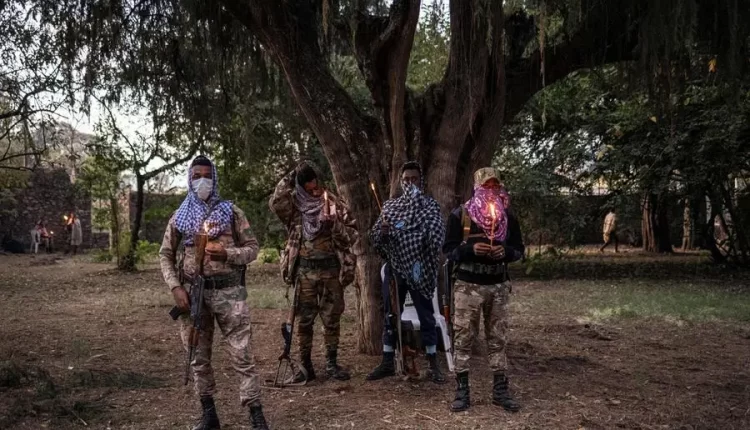Ethiopia extends state of emergency in Amhara
Ethiopia’s parliament has extended by four months a state of emergency declared in August to respond to an insurgency in the northern region of Amhara that has resulted in hundreds of deaths and drawn accusations of widespread human rights abuses.
Fighting erupted in Amhara last July between federal forces and a local militia called Fano, which has accused the government of undermining the region’s security.
The state of emergency handed the government powers to impose curfews, restrict people’s movement and ban public gatherings.
Since August, government forces have pushed Fano fighters out of cities but fighting has continued in smaller towns and rural areas.
Parliament said the extension was granted following a request by the justice minister and deliberations among lawmakers.
The government denies it is seeking to undermine Amhara’s security.
The conflict there erupted less than a year after Prime Minister Abiy Ahmed’s government reached a peace deal in November 2022 to end a two-year civil war in the neighbouring Tigray region that killed tens of thousands.
Fano militiamen fought alongside the army against Tigrayan forces, but relations between the two sides quickly soured.
This was in part due to the peace deal, which many in Amhara said failed to address their concerns about security threats from Tigray and another neighbouring region, Oromiya.
The state-appointed Ethiopian Human Rights Commission (EHRC) has documented a range of alleged abuses in the Amhara conflict, most of which it has attributed to government forces.
In October, it said dozens of civilians had been killed by drone strikes and house-to-house sear ches by government forces.
The government has not responded to specific allegations of abuses in Amhara but said in November that an EHRC report on the subject lacked balance.
EHRC head Daniel Bakele said on social media that his organisation was “gravely concerned” about the implications of the extension for human rights and the humanitarian situation.
Reuters/Hauwa M.



Comments are closed.